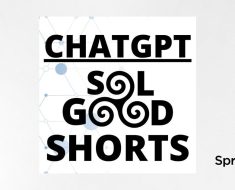
All you need to do is type in a text prompt, and MetaGPT automatically turns your input into a functional web application.
The tool uses GPT-4 under the hood, which gives it the ability to understand nuanced prompts and craft the underlying logic for the web app.
And although the current capabilities of MetaGPT may seem impressive, this is just the tip of the iceberg of what lies ahead in the field of generative AI. As we continue to refine AI models, the functionalities that no-code platforms can offer will expand, democratizing the tech development landscape.
MetaGPT by Pico allows users to build any kind of app they envision using the power of natural language.
All you need to do is type in a text prompt, and MetaGPT automatically turns your input into a functional web application.
The tool uses GPT-4 under the hood, which gives it the ability to understand nuanced prompts and craft the underlying logic for the web app.
And although the current capabilities of MetaGPT may seem impressive, this is just the tip of the iceberg of what lies ahead in the field of generative AI. As we continue to refine AI models, the functionalities that no-code platforms can offer will expand, democratizing the tech development landscape.
OpenAI promised how AI could build apps when it launched its latest large language model, GPT-4. Yet, you cannot find that feature in ChatGPT at the time of writing.
That is why WhimsyWorks and other tech firms have been developing apps with that function. Eventually, it released the AI app generator, MetaGPT.
It is simple to use as ChatGPT. You type a request, and it will generate results. Unlike OpenAI’s program, WhimsyWork’s product can create mobile apps.
MetaGPT also lets you improve results by adding new prompts in multiple iterations to create a satisfactory result. Its simplicity enables everyone to create mobile applications, even if they lack technical know-how.
The MetaGPT host Pico allows users to use generated apps for commercial purposes. In other words, you can use its programs for your business.
However, the AI company reminds users of their responsibilities. Pico says it reserves the right to use your code for any purpose. Moreover, it forbids people from replicating similar or competing services.
MetaGPT is impressive but not foolproof. Like ChatGPT, its results may sometimes contain errors and “hallucinate data.” The latter refers to the AI bot’s tendency to invent facts and cite them as true in its results.
More importantly, you should be careful using AI programs because some may violate your privacy. For example, Italy temporarily banned ChatGPT for allegedly mishandling user data
MetaGPT is not the only generative Ai project in development. Within a few months, ChatGPT inspired many to use artificial intelligence uniquely. For example, Runway AI announced its Gen-2 video generator.
As the name suggests, it creates videos based on user prompts. The Runway video generator also offers numerous customization options. For example, you may submit a photo so that it will base its video on that sample.
Roblox is a popular metaverse sandbox game that lets players create digital worlds and have fun with others. In February 2023, it unveiled development plans for an AI game creator.
It allows people to create video games in Roblox with text prompts. For example, you may ask the bot to change the color of a car in your game.
The Roblox tool enables you to set controls via text commands. For example, ask it to honk the horn when you press the “B” button to enable that game feature.
MetaGPT opens new possibilities for artificial intelligence applications by creating apps from user prompts. Eventually, it will change how people create programs.




